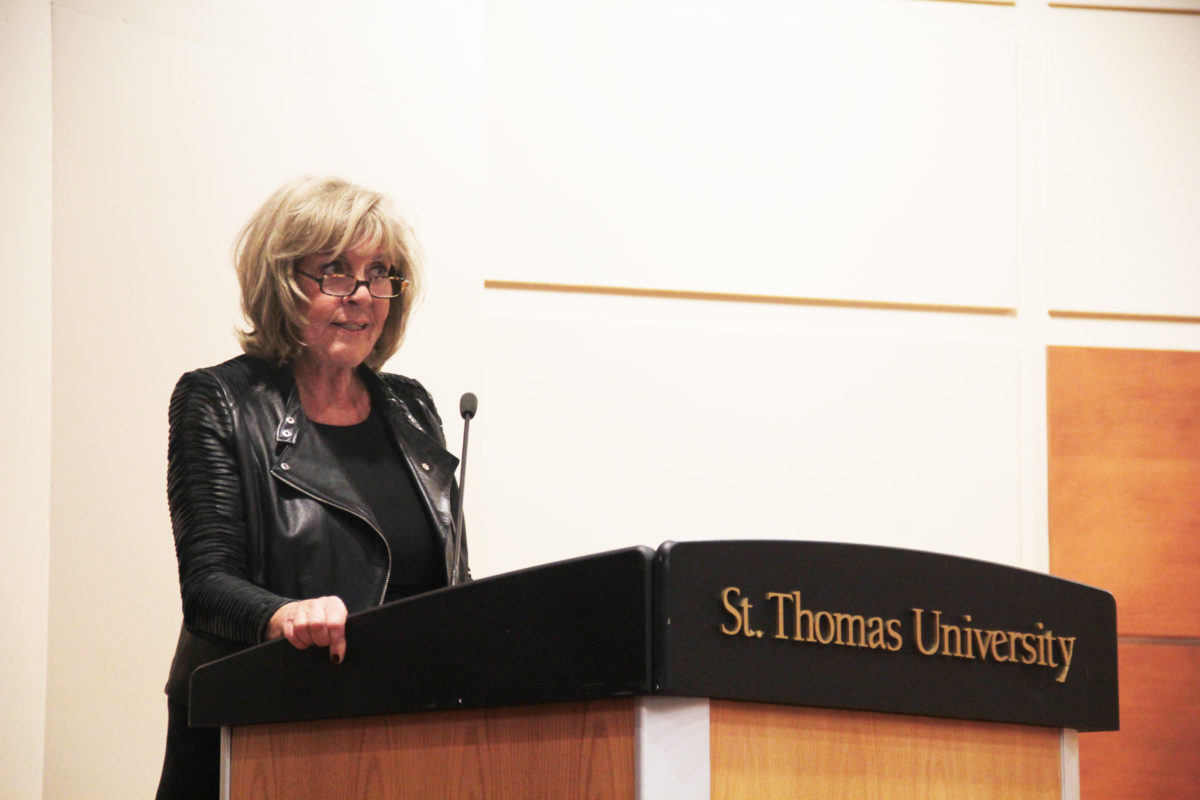Investing in girls and women can change the world, emphasized writer and human rights activist Sally Armstrong on Thursday at the Vigod Memorial Lecture.
“‘There is a crack in everything and that’s how the light gets in,’” said Armstrong, quoting the recently deceased singer and songwriter Leonard Cohen.
Armstrong said now, especially in light of the recent United States election, “we need to be aware and we need to take action and speak up … Your voice is the strongest tool you have.”
Armstrong has received several awards, including the Order of Canada in 1998, for her reporting on women and children in conflict areas like Afghanistan and Rwanda.
In addition, she has worked for Maclean’s and other publications, authored six books, and is the recipient of 10 honourary doctorate degrees. One of those degrees comes from St. Thomas University.
The Vigod Memorial Lecture is held annually in honour of Bernie Vigod, a lifelong human rights advocate and history professor at UNB.
Armstrong, who the Taliban used to call “the big woman from Canada with the yellow hair,” spoke poetically and interjected her lecture with humour throughout the evening.
She told the audience in Kinsella that women make up two-thirds of the world’s farmers and if they had the same access to tools for farming as men, they could feed 150-million more people. She also said poverty, lack of education and oppression of women are three issues in common among 31 areas that are in fluctuating states of civil conflict.
Armstrong said society can no longer afford to oppress half the world’s population.
“Women are essential to economic prosperity, whether it’s in Kabul or Nairobi or Fredericton.”
When women began to use Facebook, the earth shifted, said Armstrong.
“The worst day in the lives of misogynists, extremists and fundamentalists was the day the girls and women in this world started to talk to each other,” she said.
“The threats for human rights started to weave themselves together like a tapestry of change. You want a better economy? Put the women to work. Your health system is lagging? Ask about maternity and infant healthcare. War is your problem? Bring women to the negotiating table. Poverty is stuck at unacceptable levels? Ask women to make the budget.”
Armstrong also spoke about the Yazidi people, a religious minority who have been exiled from their ancestral land in Northern Iraq. Many Yazidis have died, been displaced or are being used by ISIS as sex slaves.
There are only 600,000 Yazidi people left in the world. Armstrong told the story of one Yazidi women who was captured by ISIS and escaped four times.
“It was a horror story,” she said.
She also talked about Kenyan girls who spoke up against rape and marched to the high court chanting, “These are our rights.”
“Each of their stories play on the back of my eyelids,” Armstrong said as she spoke about the women and children she’s interviewed across the world.
“The women and girls are the new game changers. They’re the ones who are reducing poverty, cutting conflict and improving the economy. Who can argue with that? And I say to you tonight, that’s how the light gets in.”

